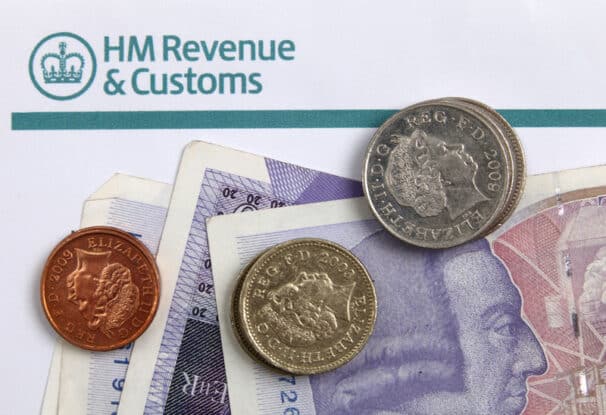The following article concentrates on the obligations of a UK taxpayer when buying a property in Israel and focuses on some of the issues to be considered from a UK perspective.
Any UK resident buying property abroad remains exposed to UK tax on that property. This may include UK Income Tax on rental income, UK Capital Gains Tax on property sales, and UK Inheritance Tax on any properties in Israel that you leave to your heirs.
If you no longer live in the UK, you may still have to file a tax return with HMRC, even if you are a non-resident. The tax rules for UK residents and non-residents are vastly different, and one of your first requirements is to determine your tax residency status in the UK. It is important to remember that even if you are officially a resident in Israel, you may still be a tax resident in the UK.
Some important issues for UK residents to consider when buying property in Israel are as follows:
Main Residence Relief for Holiday Homes in Israel
There is nothing in the UK tax legislation to say that a foreign holiday home cannot be a UK resident individual’s main residence for Capital Gains Tax purposes. A holiday home in Israel can be treated as your main residence by making an election to that effect, generally within two years of buying the property. The property in Israel must be your own holiday home for at least part of the time but, by making the election, you will be able to exempt some or all of the capital gain on your home in Israel from UK Capital Gains Tax. Beware, however, that you are only allowed one main residence and, if you’re married or in a civil partnership, you are only allowed one main residence between you, so electing to treat your holiday home in Israel as your main residence could backfire if you sell your main home back in the UK. You can get the best of both worlds though if you only elect to treat your property in Israel as your main residence for a short period, say a week. How does this help? Well, since every main residence is also exempt for the last three years of ownership, that week buys you three years. In other words, you lose one week’s worth of exemption on your main house but gain three years (and a week) of exemption on your holiday home in Israel.
Allowable expenses
If you rent out your property in Israel, you have a foreign rental business. Like any other business, you’re entitled to claim tax relief for your business expenses. That includes any travel costs which you incur for business purposes. Furthermore, all foreign property rentals are treated as one business. Hence, for example, you could claim the cost of going to Tel Aviv to look for a possible new rental property against the rental income from a villa that you already have in Spain.
Understand the Local Taxes
Israel will tax foreigners on any property they own in the country. Local taxes often apply to property purchases, sales, and rental income. You will get double tax relief in the UK for any foreign tax on the same income or capital gains when the UK accepts that the foreign tax is broadly equivalent to the UK tax you are paying. Beware, however, that every country has a different tax regime and not all of them are compatible with the UK tax system. If you suffer a tax in Israel that is different in character from any UK tax, or which arises when no UK tax is due, you may not get any relief for it in the UK. So, a foreign tax at 30% which is deductible from your UK tax liability on the same income may actually cost you less than a foreign tax at 10% for which no double tax relief is available. All these factors need to be considered before you invest in property in Israel.
Do You Want Double Tax Relief?
As a general rule, it is usually worth claiming double tax relief for any foreign taxes whenever you can. Generally, a tax credit is available in the UK for the tax paid in Israel, but this usually means you end up paying the higher of the UK or the Israeli tax rates. Many people overlook the fact that they have a liability to pay tax on the rental income in the country where their rental property is situated. This applies whether you are resident in that country or in the UK. This means that if you own a rental property in Israel, for example, you may need to submit a tax return to the Israeli authorities showing your rental income (together with any other Israeli sourced income), even if you don’t live in Israel. There is a reduced 10% flat-rate tax option (“reduced tax option”) which can apply, assuming the apartment is used as a place of residence in Israel and the income from the rent is not considered income from a business.
As a UK resident, you will also need to declare the income to HMRC. Israel has a “double taxation agreement” with the UK so in most cases, you are unlikely to face being taxed twice on the same income. The double taxation treaty grants partial relief against liability to tax in the UK. Where your UK tax liability is greater than the tax payable in Israel, the difference is paid in the UK. However, if the UK tax is less, there is no repayment of the Israeli tax in the UK. However, you cannot get any repayment of foreign tax through a double tax relief claim and the best you can ever do is to reduce your UK tax liability to nil. Sometimes, the Israeli tax may actually exceed the amount of the taxable income or capital gain for UK tax purposes. In these situations, it is better to claim the foreign tax as an expense rather than to claim double tax relief. Where you claim foreign tax as an expense, it reduces the amount of the taxable income or capital gain and can even create a loss. This loss can be carried forward to give you future tax relief and hence, in some situations, can actually give you better value for your foreign tax than a double tax relief claim.
Reduce Your Foreign Exchange Tax Risk
All UK tax calculations for individual taxpayers are carried out in pounds sterling. This creates some particular problems when it comes to capital gains on property in Israel. You may make small gains in the local currency, but when you translate your purchase and sale costs back into sterling, you may have greater profits. You should generally try to make sure you dispose of your foreign currency sale proceeds in the same UK tax year as you dispose of the foreign property itself to avoid having a new chargeable asset for UK Capital Gains Tax purposes which may give rise to a capital gain or capital loss when you eventually spend them or exchange them into Sterling or any other currency.
In conclusion, if you are buying a property in Israel, there are various considerations both in Israel and back in the UK. If you are buying as a UK resident, it is important to seek advice from a qualified tax advisor on these matters.

Gary Bloch, FCCA is a partner at FKGB Accounting, an Israel-based accounting firm specializing in assisting Israeli companies/investors and Olim with their UK taxation requirements. Gary can be reached at [email protected] for a free consultation and planning advice.



